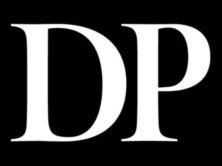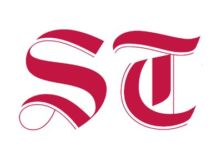
(Credit: McClatchy logo)
McClatchy published its “shared code of ethics” for all McClatchy newsrooms this month.
In a Jan. 23 announcement, Charlotte Observer executive editor Sherry Chisenhall wrote, “This ethics code will be published on the sites of all McClatchy news organizations. It applies to every journalist in our company, including reporters, editors, visual journalists, social media editors, data journalists, designers and interns.”
McClatchy sent iMediaEthics the following from Robyn Tomlin, who led the development of the new code.
“As more research has been done around trust and transparency, it has become clear that readers appreciate knowing more about the standards and practices that guide our reporting and publishing processes,” Tomlin said. “Given that, we decided it was a good time to evaluate our guidelines, standardize them and to publish a public-facing version that is available to readers. Nothing specific happened to spark the development of the new guidelines. Each McClatchy site previously had its own set.”
Chisenhall, who worked on the ethics code, wrote in her statement:
“These guidelines were shaped by a team of McClatchy journalists from across the country. We considered all existing ethics policies in our newsrooms, as well as the policies of other news organizations. No policy could anticipate every questionable situation that can arise. McClatchy’s ethics code is based on the principle that disclosure and open discussion with news managers is the key to ethical decision-making.”
The guidelines include clauses for accuracy and fairness, trust and transparency, public interactions, and visual standards. For example, the guidelines state McClatchy usually doesn’t allow sources to review content before publication with the exception of checking complex quotes for accuracy.
Concerning anonymous sources, the guidelines state:
“Information or documents provided by an unnamed source should be corroborated by at least one additional source who obtained the information or documents independent of the first source. If a second source cannot be found, a senior editor may sign off on a single source if he/she is extremely well-placed and reliable. Single-source approval rarely will be approved. Editors are required to request the identity of the source, and reporters must share that information.”
One notable guideline addressed opinion versus news:
“Opinion journalists are not constrained by the same prohibitions on expressing their personal points of view that guide reporters and news editors. The job of columnists, editorial writers and opinion editors is to make a well-reasoned case for opinions that are backed up by facts. Columnists, editorial writers and opinion editors will, however, abide by the same guidelines for civic and political activities that news reporters and editors follow.”
UPDATED: 1/28/2020





